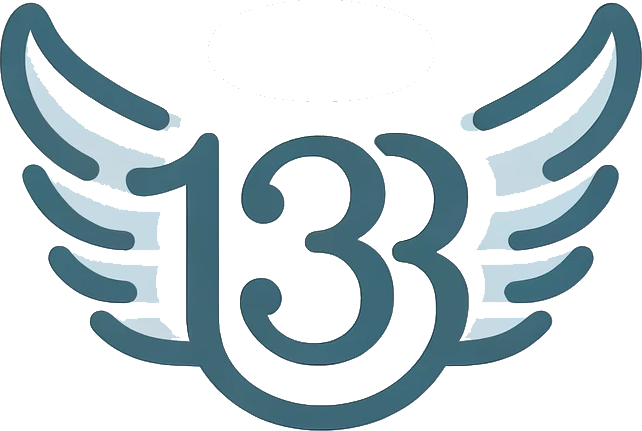Have you ever come across the term “RO” and wondered what it stands for? In various contexts, “RO” can represent different things, from water purification systems to job titles. In this article, we will delve into the meaning behind the RO full form across multiple fields and industries.
Understanding RO in Water Purification: Reverse Osmosis
Reverse Osmosis (RO) is a widely used technology for water filtration that removes contaminants from water by pushing it through a semipermeable membrane. The process works by applying pressure to the more concentrated side of the membrane, allowing pure water to pass through while impurities are blocked. This results in clean, purified water free from harmful substances like lead, arsenic, fluoride, and more. RO systems are commonly used in residential, commercial, and industrial settings to improve water quality.
Advantages of RO Water Purification Systems:
- Removal of Contaminants: RO systems effectively remove a wide range of impurities from water.
- Improved Taste: By eliminating dissolved solids, RO water often tastes better.
- Cost-Effective: Long-term cost savings as compared to bottled water.
- Environmental Impact: Reduces the need for plastic bottles, contributing to environmental conservation.
Limitations of RO Water Purification Systems:
- Wastewater Generation: RO systems produce wastewater during the filtration process.
- Removal of Beneficial Minerals: Some beneficial minerals may also be removed along with impurities.
- Maintenance Needs: Regular maintenance and filter replacements are necessary to ensure optimal performance.
RO in Job Titles: Research Officer
In the business and academic world, the abbreviation RO can also refer to a Research Officer. A research officer plays a crucial role in conducting research, collecting data, analyzing information, and providing insights on various topics. They often work in research institutions, universities, government agencies, or private organizations to contribute to the advancement of knowledge in their respective fields.
Key Responsibilities of a Research Officer:
- Conducting Research: Planning and executing research projects to gather relevant data.
- Data Analysis: Analyzing research findings and drawing meaningful conclusions.
- Reporting: Presenting research results through reports, presentations, or publications.
- Collaboration: Working with teams or partners on multidisciplinary research projects.
RO in Technology: Read-Only Memory
In the realm of computing and technology, RO can stand for Read-Only Memory. Read-Only Memory is a type of non-volatile memory that stores data which is retained even when the power is turned off. Unlike Random-Access Memory (RAM), which is volatile and loses data when the system is powered down, ROM retains its contents permanently. ROM is commonly used in devices for firmware storage, booting sequences, and critical system operations.
Types of Read-Only Memory:
- Mask ROM: Programmed during manufacturing and cannot be altered.
- Programmable ROM (PROM): Can be programmed once after manufacturing.
- Erasable Programmable ROM (EPROM): Can be reprogrammed after erasing the existing data.
- Electrically Erasable Programmable ROM (EEPROM): Enables the selective erasing and reprogramming of specific data.
RO in Financial Terms: Return on Investment
In the financial domain, RO is often used to represent Return on Investment. Return on Investment is a metric that evaluates the profitability of an investment by comparing the gain or loss generated relative to the amount invested. It is a crucial indicator used by investors, analysts, and businesses to assess the efficiency of an investment and make informed decisions regarding financial resources.
Calculating Return on Investment (ROI):
ROI is typically calculated using the following formula:
[ROI = \frac{(Net Profit / Cost of Investment) \times 100}{]
Benefits of Analyzing Return on Investment:
- Performance Evaluation: Helps in assessing the effectiveness of investment strategies.
- Decision Making: Guides decision-making processes regarding future investments.
- Resource Allocation: Facilitates the allocation of resources to maximize returns.
Frequently Asked Questions (FAQs) about RO Full Form:
1. What is the full form of RO in medical terms?
RO can stand for Radiation Oncology in the medical field, which involves the use of radiation therapy to treat cancer and other conditions.
2. How is RO different from UV water purification systems?
While RO systems use a semipermeable membrane to filter water, UV (Ultraviolet) systems disinfect water by exposing it to ultraviolet light, targeting bacteria and viruses.
3. What are the maintenance requirements for RO water purification systems?
Regular maintenance of RO systems involves changing filters, sanitizing components, and ensuring proper water pressure for optimal performance.
4. Can RO systems remove chlorine from water?
Yes, RO systems are effective in removing chlorine and chloramine, which are commonly used in water treatment but can affect taste and odor.
5. Is Return on Investment (ROI) the same as Return on Equity (ROE)?
Return on Investment (ROI) measures the profitability of an investment relative to its cost, while Return on Equity (ROE) evaluates the profitability of a company in relation to its shareholders’ equity.
6. What industries commonly use Read-Only Memory (ROM) technology?
ROM technology is prevalent in consumer electronics, automotive systems, medical devices, and industrial equipment for storing essential data and firmware.
7. How can a Research Officer contribute to organizational growth?
A Research Officer can contribute to organizational growth by providing valuable insights, supporting evidence-based decision-making, and driving innovation through research initiatives.
In conclusion, RO can have diverse meanings across various fields, ranging from water purification systems and job titles to technological applications and financial metrics. Understanding the full form of RO in different contexts can enhance your knowledge and insight into the terminology used in specific industries and disciplines. Whether you are exploring the efficiency of water filtration methods or evaluating investment opportunities, recognizing the significance of RO can provide valuable insights into different aspects of our daily lives and professional endeavors.

